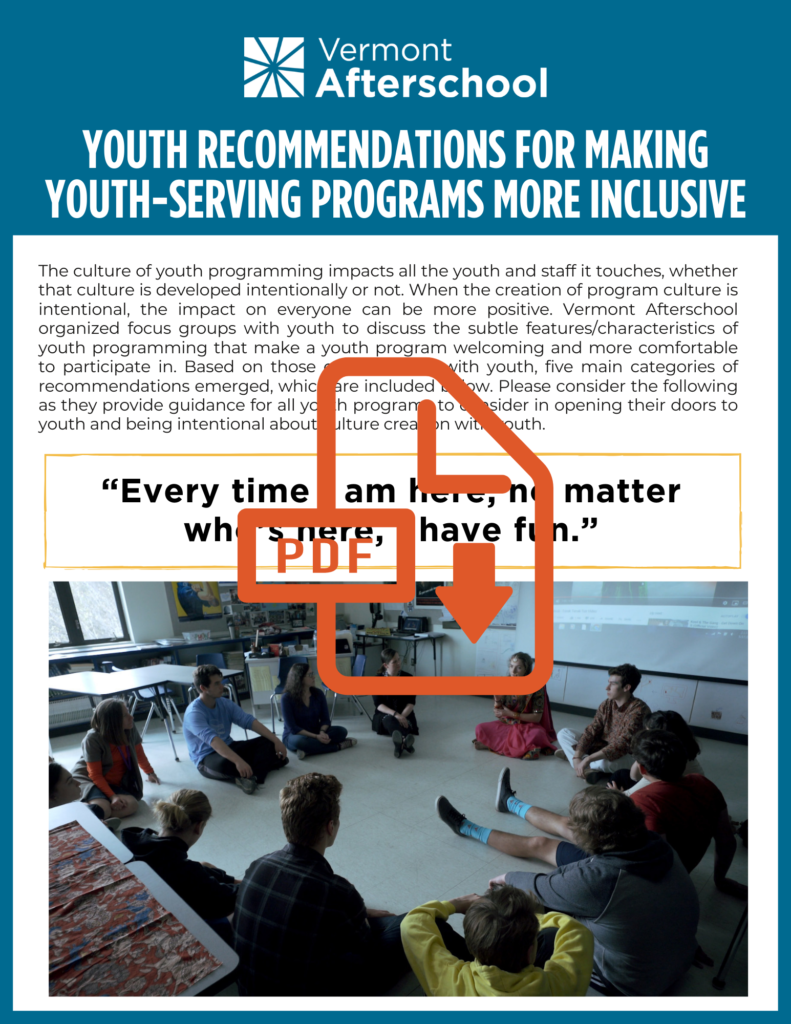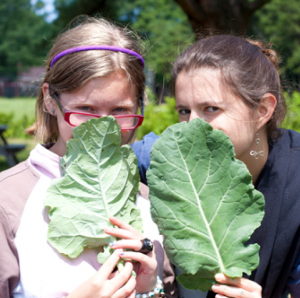As you all know, Vermont Afterschool has a mission of strengthening programs, building partnerships, and transforming communities so that all Vermont youth are active, engaged, connected, and heard. We have been encouraging, supporting, and sometimes challenging youth-serving organizations to intentionally create space for youth voice and youth leadership in their programs. This summer, we went on a quest to authentically engage youth to develop recommendations for making youth-serving programs more inclusive and welcoming for all youth.
For someone like me, who worked with youth providing direct services for years, the prospect of being in the same room with youth was exciting, which explains why I was so impatient to get our message out to service providers.
Research has highlighted the importance of afterschool programs in helping children develop teamwork, leadership, social and critical thinking skills. Participation in afterschool programs serves as a protective factor for youth and helps promote positive youth development while reducing youths’ likelihood of being engaged in risky behaviors. Furthermore, there’s promising evidence that high attendance in summer and afterschool programs improves social-emotional outcomes.
Despite all the positive impacts of third-space programs, like afterschool and summer programs, data reveal that high school students who identify as members of the LGBTQ+ community are less likely to participate in extracurricular activities than their heterosexual peers. In addition, LGBTQ+ youth are comparatively more likely to not participate in any afterschool activities. Furthermore, “among Vermont high school students, racial and ethnic minorities are significantly less likely to participate in any hours of afterschool programming than white students; among those who do participate, they do so less frequently than their white peers.” The same is true for youth with disabilities.
Given the importance of third-space programming and the disproportionate participation of historically marginalized youth groups, we focused our effort to gather input from BIPOC, LGBTQ+ youth, and youth with disabilities in Chittenden and Franklin counties. After multiple phone calls and email exchanges with program people, wonderful conversations with youth, and the compilation and synthesis of notes from different focus groups, we are pleased to share these youth recommendations for making youth-serving programs more inclusive.
We conducted three focus group discussions in total; one in Franklin County (in collaboration with the Spectrum Youth & Family Services – St. Albans, and Northwestern Counseling & Support Services) and two in Chittenden County (Spectrum Youth & Family Services – Burlington and Association of Africans Living in Vermont). A total of 24 participants who self-identify themselves as BIPOC, LGBTQ+ youth, and/or youth with disabilities participated in the discussions filled with emotions, joy, challenging topics, and an eagerness to invite much-needed changes. We shared laughter and frustrations and ended each conversation sharing our gratitude for each other.
The program folks were “filled with tears” to hear youth appreciating their work. Youth expressed their appreciation for creating a safe space where they felt heard, and we all enjoyed opportunities to learn from these youth. These conversations highlighted a need to do more, and I felt good knowing that we have youth who’re willing to advocate for themselves and their peers even if it means going beyond their comfort zone. Let us all come together in implementing these recommendations from our youth to make our programs more inclusive and supportive, and places where all youth can grow and flourish.


